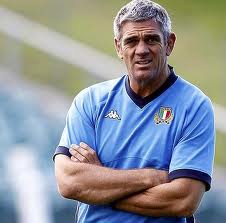 |
| F.A. Cup confusion |
But, would
this really improve the game of football?
As stated in Law 10 ‘The Method of Scoring’ on page 32
of the official FIFA ‘Laws of the Game’ manual: “A goal is
scored when the whole of the ball passes over the goal line, between the
goalposts and under the crossbar.”
At present, this is a judgement call made by
the referee and assistant referee, whose view is potentially obscured by
players, leading to the belief that introducing technology would eradicate such
issues.
FIFA is
currently testing two potential camera-based methods, including ‘Smart Ball’
and ‘Hawk-Eye’.
The former
refers to balls equipped with censors and magnetic fields around the goal to
give a real-time verdict on whether or not the ball has crossed the line.
 |
| Lampard out of luck |
The latter
system uses triangulation, through six high-speed cameras, only needing to
observe 25 percent of the ball to determine its location, overcoming the
concern of players blocking the line of vision.
However, this
is not real-time and would therefore require stoppages in play for disputed
incidents. Cost of installation has also been estimated at £250,000 for each
stadium to utilise such technology.
In this instance, a greater divide between
the Premier League and the lower leagues would be created, an act which would
be frowned upon by those unable to afford such facilities. It seems difficult to
justify the costs of implementation for a scenario which is relatively rare.
True, most
big-money sports in the modern era take advantage of technology to aid decision
making, including finish line calls in horse racing, swimming and athletics.
Cricket and tennis both use Hawk-Eye for in-line judgements, whilst rugby
employs video referees for dubious try decisions.
To many
general sports fans, football may appear to have been left in the dark ages,
but all dedicated football fans will appreciate the one resounding difference between
their favoured discipline and the others mentioned above.
 |
| Keeper 'saves' a goal |
Football is
the only non-stop sport, whereby breaks in play are few and far between and the
very ethos of the game is based on hard, fast, flowing action. To introduce
lengthy stoppages, interrupting the natural rhythm of the game, would be to
remove the heartbeat of a sport which has survived perfectly well throughout
the ages, without the need for such inclusion.
The most
famous case in recent history occurred in the 2010 World Cup in South Africa,
when Frank Lampard’s 20-yard strike was judged not to have crossed the line,
despite video replays showing the ball was a foot over the chalk.
Sure, England
had reason to feel hard done by, but the fact remains, they were horrendously outclassed
and convincingly defeated 4-1 by much classier opponents. So, rather than being a
decision that changed the outcome of England’s World Cup fortunes, it became an
event that was used as a scapegoat to mask England’s lack of talent.
Similarly, on
Sunday, Tottenham were equally unlucky to have a goal awarded against them,
which never crossed the line. But, despite Chelsea scoring on four other occasions,
in an impressive 5-1 rout, it was the irrelevance of the goal that never was,
which stole the headlines.
As with these
two instances, there would be little to no overall change of the successes and
failures in the football world.
 |
| The 1966 World Cup Final |
The one major
argument in favour of goal-line technology is justice. The problem being, the use
of technology for one scenario creates inconsistencies in others.
For example, a
referee may possess the power and knowledge to award a goal after confirming,
through video replay, that the ball has crossed the line. Yet, if the corner
that lead to the goal should never have been given, because video replays show
the defender never touched the ball, it is impossible to claim justice in this
situation.
The only way
to achieve real justice throughout football is through the total use of
computerised, video-assisted, robotic referees for every single decision, including
throw-ins, free-kicks, corners, goal-kicks, penalties and goals causing
uncountable stoppages and the complete death of the game.
Yes, sometimes
humans get decisions wrong and sometimes they go in your teams favour and
sometimes they do not, but this is part of the game.
Genuine football fans
would agree that half the enjoyment of being a spectator, is the debates that
ensue over the referee’s big calls. As the president of FIFA, Sepp Blatter,
claimed, “Fans love to debate any given incident in a game. It is part of the
human nature of sport.”
 |
| FIFA not keen on cameras |
FIFA have
always claimed their objective is to open up football to the world, a notion
that is made impossible by the undermining of its universality.
The idea of an
ancient sport being replicated all over the planet, promoting ‘jumpers for
goalposts’ football, is removed with the suggested inclusion of complex modern goal-line
technology.
After all,
football is an art, not a science.
Written by Dom Wallace
Written by Dom Wallace














